ANACORTES | BOW-EDISON | BURLINGTON | CONWAY
LA CONNER | MOUNT VERNON | SEDRO-WOOLLEY | STANWOOD AND SURROUNDING COMMUNITIES










SKAGIT PUBLISHING










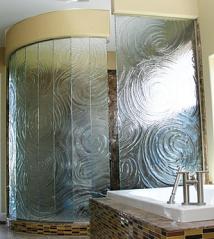
























SKAGIT PUBLISHING
























When it comes to choosing the perfect flooring for your space, consulting a flooring professional is an unequivocal decision.
A flooring dealer serves as your trusted guide through the vast array of contemporary flooring materials, encompassing options like carpet, tile, linoleum, concrete, ceramic or porcelain tile, vinyl tile, wood, laminate, and plank vinyl.
Your selection hinges on several factors, including the room’s purpose, maintenance requirements, foot traffic, and, of course, aesthetic preferences. Many flooring dealers maintain a comprehensive inventory of popular choices and can readily procure materials tailored to your needs. Given the competitive nature of the industry, identifying the right dealer is paramount in ensuring you receive the utmost value and service for this significant and long-term investment. Here are key considerations to keep in mind as you embark on your
journey to select the ideal flooring and corresponding dealer.
While securing the best possible price is a universal desire, it is equally important to prioritize longevity when making your decision. Consider this scenario: a decade down the line, an unforeseen issue arises, and your flooring requires repairs or replacement. What if your purchase lacks a warranty to address such matters? Or worse, what if an installation error leaves your flooring permanently marred?
Scrutinize the additional support and services offered by your chosen dealer. Opt for a dealer with a stellar reputation and a proven history of delivering exceptional customer service. Investing a little extra is a small price to pay when you are forging a long-lasting relationship. Remember, you are not merely acquiring flooring; you are cultivating a partnership.

Design Consultation
Laminate flooring
Vinyl plank/tile
Carpet, Hardwoods
Porcelain/ceramic tile
Floors, showers, backsplashes and more!
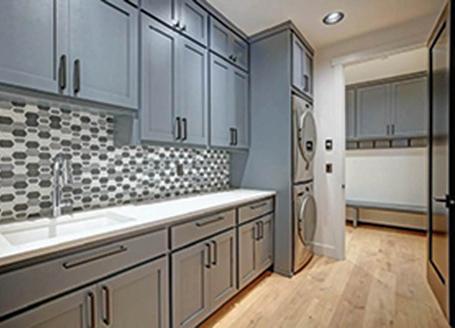
When seeking a reputable flooring dealer, begin by conducting research. The internet and your local newspaper are valuable resources in your quest. Online platforms host review sites that offer insights into the local flooring dealer landscape, allowing you to compare and contrast options. Additionally, perusing local newspaper advertisements can reveal ongoing specials and promotions.
While researching, do not overlook the Better Business Bureau as a vital reference point. Consult their records to ascertain if any complaints have been lodged against the company you are considering. Equally crucial is understanding how these complaints were resolved. Additionally, consider reaching out to the Chamber of Commerce for additional insights into your prospective dealers.
Once you have compiled a list of potential dealers, initiate contact with each of them. During your inquiry, delve into the company’s background and tenure in the industry. Request information about their history, and don’t hesitate to seek referrals from previous clients who can provide valuable references.
Dive into the specifics of their installation services and gauge the dealer’s reliability. Inquire about their reliance on in-house teams versus external contractors. Understand their pricing structure and explore the extent of their warranty coverage.
Should you visit their offices or showrooms, you may find a scrapbook showcasing previous projects, offering firsthand glimpses into their craftsmanship.
In your decision-making process, factor in the dealer’s experience. Consider the quality of materials they offer, ensuring that prices align with or undercut the market rates. Positive references from satisfied clients can make all the difference in identifying the ideal flooring dealer who will accompany you on your journey towards enhancing your living or working space.
When orchestrating the perfect event, one of the foremost tasks on your checklist is securing the ideal venue. Here are some key considerations to ponder as you embark on the quest for the perfect event venue.
Choose a venue that alleviates rather than exacerbates your anxiety levels leading up to and during the event. This is particularly paramount for weddings, where the expertise of the venue’s staff can significantly impact your experience. The ideal venue staff should extend respect and grace to you and your guests.
Premium venues often boast extensive networks within the event industry, allowing them to offer invaluable recommendations for local vendors. Their collaborative input during the planning phase can contribute to your peace of mind, fostering a sense of relaxation as you prepare for your momentous occasion.
While a venue’s support is invaluable, it’s equally important to retain control over the entire process. Ensure that every detail aligns with your expectations. If you ever feel pressured or perceive decisions being made without your consent, it’s essential to consider terminating the relationship. Collaborate with professionals who prioritize your vision and actively engage with you throughout the planning journey.
The overarching theme, style, and decor of your event should unequivocally reflect your preferences. Entrust venue staff with the management of finer details, affording you the liberty to concentrate on more significant facets of your occasion.
Venues vary significantly in terms of the services they offer. Some provide minimal assistance, while others extend support in setting up and dismantling the event space. The arduous tasks of arranging tables and chairs, as well as the post-event cleanup, can substantially impact your overall experience.
Thoroughly scrutinize your contract, with particular attention to the services included. Unless you’re working within stringent budget constraints, consider opting for a full-service venue that incorporates setup and teardown as part of their
comprehensive package.
Certain events necessitate specialized technical arrangements. For instance, musical events demand impeccable sound and lighting systems. Your chosen venue should feature appropriate electrical and audio connections, along with discreet cable routing options.
Weddings, too, present unique technical
considerations, encompassing clear sound for bands or DJs, well-defined dance floors, and accommodating setups for photographers, including backdrop placements and specialized lighting arrangements.
In summary, selecting the perfect event venue is instrumental in translating your vision into a memorable reality for both you and your guests.



Choosing the right builder is crucial when you’re building a home, as they play a significant role in the success of your project. To ensure that you select a reputable builder who can bring your vision to life within budget and on schedule, follow these steps:
Establish a clear and realistic budget for your project, taking into account potential cost overruns and unforeseen expenses. Consider factors like permits and fluctuating material prices.
Gather bids from at least five different builders. Look for builders through various sources such as the internet, local ads and recommendations from your network.
Carefully review each bid, paying attention to the details and scope of work included. Disregard the highest and lowest bids as they may indicate inaccuracies or inexperience.
Schedule interviews with the builders who submitted bids. During these discussions:
• Share your vision for the project.
• Request a detailed bid that outlines all costs.
• Ask for references from past clients.
• Inquire about their previous projects, especially those similar to yours. Contact the references provided by the builders to gather information about their experiences. Ask about timeliness and adherence to schedules, budget management, crew behavior and cleanliness and any necessary post-project repairs or touch-ups.
Once you’ve selected a builder, request a written contract that includes:
• Detailed project specifications.
• Agreed-upon time frames for completion.
• Terms for handling delays and additional costs.
• Information about subcontractors if applicable.
• Payment schedules and terms.
• Procedures for final payments.
• Terms for permits and cleanup.
Thoroughly read and understand the contract, ensuring that it aligns with your expectations. Seek clarification on any ambiguous or unclear terms.
Determine who will oversee the project

on a day-to-day basis, whether it’s the builder themselves or a project manager. Meet with them before the project begins.
Adhere to the payment schedule outlined in the contract. Pay for materials only when they are on-site and request receipts for all payments.
Keep open lines of communication with your chosen builder throughout the


project to address any concerns or changes promptly.
Selecting the right builder is a critical decision that can significantly affect your home construction project. By following these steps and conducting thorough research, you can increase the chances of having a successful and enjoyable building experience.

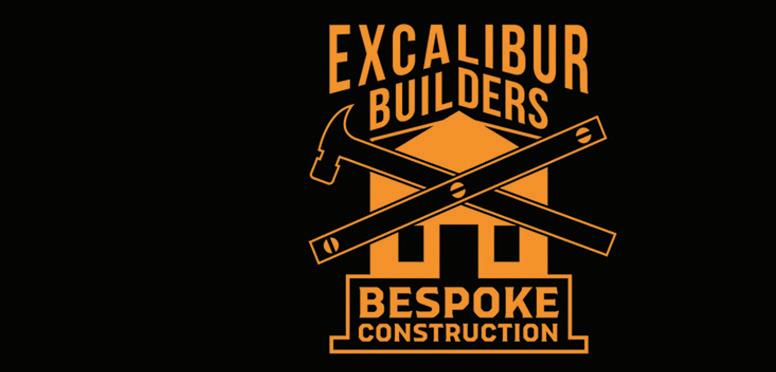


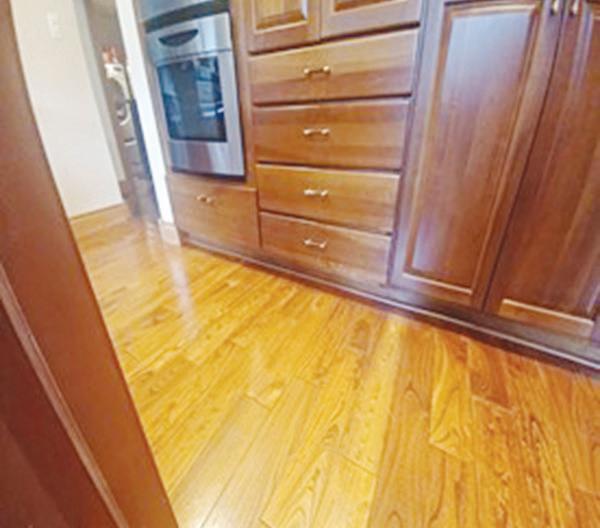





Maintaining a trusted relationship with an HVAC company can offer you peace of mind when your heating or air conditioning systems encounter issues. The best HVAC contractors are not only helpful and reliable but also capable of saving you money and sparing you from unnecessary stress.
Seek Recommendations
Word of mouth is a powerful tool in finding reputable professionals in your area. Start by asking friends, family, and neighbors for recommendations. Their firsthand experiences can provide valuable insights into local HVAC companies that excel in service and reliability.
Create a list of potential HVAC candidates and conduct thorough research on their reputations. Contact the Better Business Bureau, your state’s board of contractors, or the local builders’ association to verify their credentials. Your town’s building inspection office may also hold valuable information. Be cautious of companies with a history of numerous complaints.
Narrow down your list and reach out to the remaining HVAC companies. During your conversations, inquire about pricing, guarantees, and warranties. Ask about the estimated timeline for completing a job and the specific brands they use for equipment.
If you’re purchasing new HVAC equipment, clarify whether routine maintenance and repairs are included in the installation cost. Additionally, find out if the company offers around-the-clock emergency services.
High-quality HVAC companies are fully licensed, bonded, and insured. This insurance coverage is crucial, as it protects you in the event of worker injuries or property damage during the job. Without proper insurance, you could be held liable for damages, potentially resulting in increased insurance premiums.
Reputable HVAC companies often belong to recognized professional and trade organizations. Look for affiliations with organizations such as the American



Society of Mechanical Engineers, the AirConditioning and Refrigeration Institute, or the American Society of Heating, Refrigeration, and Air-Conditioning Engineers. Membership in these organizations signifies that the HVAC contractor meets specific certification and professional standards.
Before any HVAC installation begins, confirm that all necessary building permits are secured. Most reputable companies handle the permit filing process on your behalf with local building codes offices. However, it’s wise not to make assumptions. Verify with the permitting office to avoid potential fines and delays.
Before installing a new HVAC system in any building, insist on a load calculation. Quality HVAC companies perform comprehensive calculations rather than making rough estimates. Buildings can change over time due to factors like foundation shifts, affecting equipment efficiency. Ensure that the HVAC company doesn’t rely on the old unit’s size to determine the new one. If your old unit was inadequate, you’ll need a different-sized system. Consult with your HVAC installer to determine the appropriate size and model.











Once you’ve chosen an HVAC contractor, ask them to perform annual checkups to ensure your system runs at peak efficiency. Regular maintenance can extend the life of your HVAC equipment, save on energy costs, and help you avoid costly breakdowns.
By following these steps, you can select a reliable HVAC company that will provide you with comfort and support for years to come. A well-chosen HVAC partner will keep your home’s climate under control while offering peace of mind in any weather.
The first step in finding the ideal painting contractor is to assess their previous work. This will provide you with valuable insights into the quality of their craftsmanship. For exterior painting projects, ask the contractor for a list of buildings they have painted in the past. You can then visit these locations to inspect their work.
A high-quality paint job should exhibit durability and resilience, lasting for several years without showing signs of deterioration.
Evaluating interior work may be slightly more challenging. While paint contractors may off er photographs of their previous projects, it’s often more reliable to seek recommendations from friends and family who have recently


painted the interiors of their homes.
If you encounter interior work that impresses you, make an eff ort to obtain the contractor’s contact information. You can also reach out to realtors or builders in your area, as they often have established relationships with reputable contractors and can provide valuable references.


The best painting contractors go beyond applying paint; they assist you in making informed color choices that will enhance your home’s aesthetics. Selecting the wrong colors can have a detrimental impact on your paint job.
True professionals will exhibit patience, off ering a range of color and sheen options for your consideration. They may also collaborate with you and, if applicable, an interior designer to ensure your project’s success.
In some cases, painters possess exceptional design skills, allowing them to contribute significantly to the planning phase of your project. If you’re seeking comprehensive support for your project, consider hiring a contractor with these additional talents.
Before finalizing any contract, carefully consider all the details. Request written specifications that include project deadlines, cost breakdowns, and a list of materials to be used. As you narrow down your choices to one or two contractors, don’t hesitate to ask questions.
Inquire about their insurance coverage, the individuals who will be working on your property, and any necessary preparations for the project. If the painting is to be done inside your home, discuss furniture relocation or protection measures that may be required.
Asking these questions and obtaining clear answers will instill confidence in your choice of painting contractor. It will also ensure that your project proceeds smoothly, leaving you to relax and enjoy the fresh, updated appearance of your home.
Every thriving flower bed starts with a solid foundation of mulch. It provides a big aesthetic boost, of course, serving as a showcasing background for your plants and shrubs.
More importantly, mulch also suppresses weeds, retains moisture and enhances soil quality.
Apply mulch in the spring after planting your seasonal flowers and vegetables. Mulching around trees and other landscape features also enhances their visual interest. You’ll be putting the perfect finishing touch to your gardening efforts. Over the next few months, mulch will act as a protective layer that keeps weeds away. Into the winter, it prevents plant displacement while shielding delicate plants from cold weather. Once the mulch has fully decomposed, it’s time to refresh or completely replenish.
There is a wide variety of mulch available for any type of flower bed or garden, including wood chips, bark, pine straw, rubber mulch, dyed wood, grass clippings and even newspaper. Select a type that complements the colors of your landscaping and home, and make sure it suits your local environment. If you choose dyed mulch, apply it during a period where it won’t rain for 24 to 48 hours to prevent staining nearby hard surfaces.
Wear gardening gloves when handling mulch to shield your hands from splinters and any dyes. Choose comfortable old clothing that you don’t mind getting soiled. If you have allergies, consider wearing a face mask for added protection. Use a wheelbarrow or cart along with a shovel to transport the mulch, and lift from your knees rather than your back. To complete the job, rake the mulch to create an even layer.
If weeds begin emerging through the mulch, remove them manually or apply a weed and grass killer. Mold may develop in areas where the entire surface isn’t exposed to air and light. Gently turn the mulch and evenly redistribute everything. As the mulch dries, the mold should

dissipate. Exposure to sun and rain will cause your mulch to fade and break down, but that’s part of its purpose to enrich
the soil. Turning the mulch will also help maintain its appearance for a longer period.


Extreme amounts of moisture, freezing and thawing cycles, and the weight of snow itself can put an unmanageable amount of stress on aging structures. That’s why fall is such a smart time to repair or perhaps even totally replace your roof, as recommended. Begin with a thorough inspection.
The American Society of Home Inspectors recommends getting a professional roof inspection twice a year. You can perform your own spot checks in the meantime. Look for any cracked or curling shingles on the outside, while noting stains or damp areas in the attic. Address these issues before the coldest months since they may become more challenging and costly to fix in the wintertime.
During a professional inspection, experts will thoroughly examine your

roof from the exterior and interior of your home. They’ll assess the condition of the shingles, paying close attention to any ice dams. The inspector will evaluate the


overall state of the chimney, if you have one. Once inside, they’ll look for signs of moisture, mold and ventilation problems, while evaluating the insulation.
Conduct repairs in autumn to ensure the best outcomes. For instance, treatments for moss and lichen may require up to 180 days to take full eff ect. Installing new shingles in cold temperatures can lead to failure. Finally, repairing icy roofs is extremely hazardous work, so issues identified too late may have to wait until spring before they can be properly resolved.
The inspector will draft a comprehensive report detailing any identified issues, their level of urgency, and a proposed course of action. If you live in a region with lots of winter precipitation, they’ll note that your roof may be susceptible to collapse due to the sheer weight of snow. Even a wellmaintained roof can only withstand approximately 20 pounds of snow per square foot, according to insurance experts. That’s why regular fall inspections are so crucial. In some instances, snow removal may even be necessary during the winter season. Talk to an expert today to find out more.











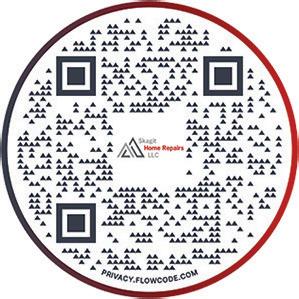

























N O W O P E N Right Inside Lincoln Hill Retirement Community Your local Senior Center Monday - Friday 10:00 - 4:00 PM D o n a t i o n s W e l c o m e !
O
L











F r i d a y 1 0 : 0 0 A M - 2 : 0 0 P M P l e a s e c h e c k o u r w e b s i t e f o r m o r e i n f o r m a t i o n
o ! W e s e r v e l u n c h M o n d a y - F r i d a y f r o m
1 1 : 1 5 - 1 2 : 1 5 - G o o n f u n t r i p s - T a i C h i
w w w l i n c o l n h i l l - r c o r g S h o p f o r T r e a s u r e s
























